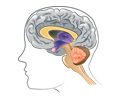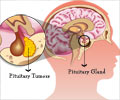Explore the greater risk of developing autoimmune diseases in Cushing's disease patients post-surgery, compared to those with nonfunctioning pituitary adenomas.

Autoimmune Disorders Associated With Surgical Remission of Cushing’s Disease
Go to source).
Higher Autoimmune Risk After CD Surgery
CD results from excessive production of corticotropin (ACTH) by a pituitary adenoma, which causes hypercortisolemia. Transsphenoidal surgery (TSS) is the first-line treatment for most hypersecreting pituitary adenomas. After TSS for CD, adrenal insufficiency occurs once the ACTH-secreting tumor is removed, the signs and symptoms of hypercortisolemia typically improve over time but steroid withdrawal symptoms may develop after remission of CD. In addition, the development of new autoimmune diseases in patients after CD remission has been observed, but research is limited.‘Did you know? There is a higher risk of autoimmune diseases in Cushing’s disease patients post-remission compared to nonfunctioning pituitary adenomas. #cushingdisease #remission #autoimmunedisease #pituitaryadenomas #medindia’





Researchers from Harvard Medical School identified 194 persons with CD and 92 persons with NFPA, frequency-matched for age and sex, who underwent pituitary surgery. The authors found that persons with CD who achieved remission were more likely than those with surgically treated NFPAs to develop new-onset autoimmune disease within 3 years after remission. According to the authors, the higher prevalence of adrenal insufficiency and the lower nadir serum cortisol levels in the CD group suggest that the postoperative adrenal insufficiency might have contributed to the development of autoimmune diseases. They also note that patients with CD who have a family history of autoimmune disease should be carefully monitored after achieving remission.
Did You Know?
Cushing’s syndrome is a rare disorder, with an incidence of 0.7–2.4 per million population per year.
Reference:
- Autoimmune Disorders Associated With Surgical Remission of Cushing’s Disease - (https://www.acpjournals.org/doi/10.7326/M23-2024)













